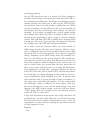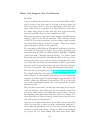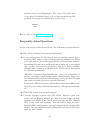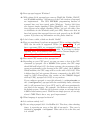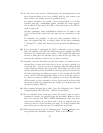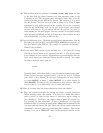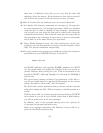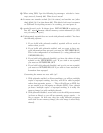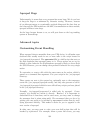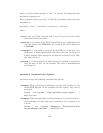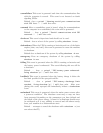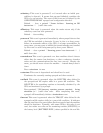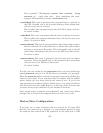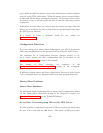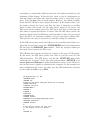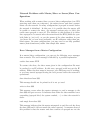Apcupsd Bugs
Unfortunately, it seems that every program has some bugs. We do our best
to keep the bugs to a minimum by extensive testing. However, because
of our inherent nature to occasionally overlook things and the fact that we
don’t have all the UPS models nor the APC documentation on those models,
apcupsd will have some bugs.
As the bugs become known to us, we will post them on the bug tracking
system at SourceForge.
Advanced topics
Customizing Event Handling
When apcupsd detects anomalies from your UPS device, it will make some
decisions that usually result in one or more calls to the script located in
/etc/apcupsd/apccontrol. The apccontrol file is a shell script that acts on
the first argument that apcupsd passes to it. These actions are set up by
default to sane behavior for all psituations apcupsd is likely to detect from
the UPS. However, you can change the apccontrol behavior for every single
action.
To customize, so create a file with the same name as the action, which is
passed as a command line argument. Put your script in the /etc/apcupsd
directory.
These events are sent to the system log, optionally sent to the temporary
events file (/etc/apcupsd/apcupsd.events), and they also generate a call to
/etc/apcupsd/apccontrol which in turn will call any scripts you have placed
in the /etc/apcupsd directory.
Normally, /etc/apcupsd/acpcontrol is called only by apcupsd. Conse-
quently, you should not invoke it directly. However, it is important to
understand how it functions, and in some cases, you may want to change
the messages that it prints using wall. We recommend that you do so by
writing your own script to be invoked by apccontrol rather than by mod-
ifying apccontrol directly. This makes it easier for you to upgrade to the
next version of apcupsd
In other case, you may want to write your own shell scripts that will be
invoked by apccontrol. For example, when a power fail occurs, you may
101



